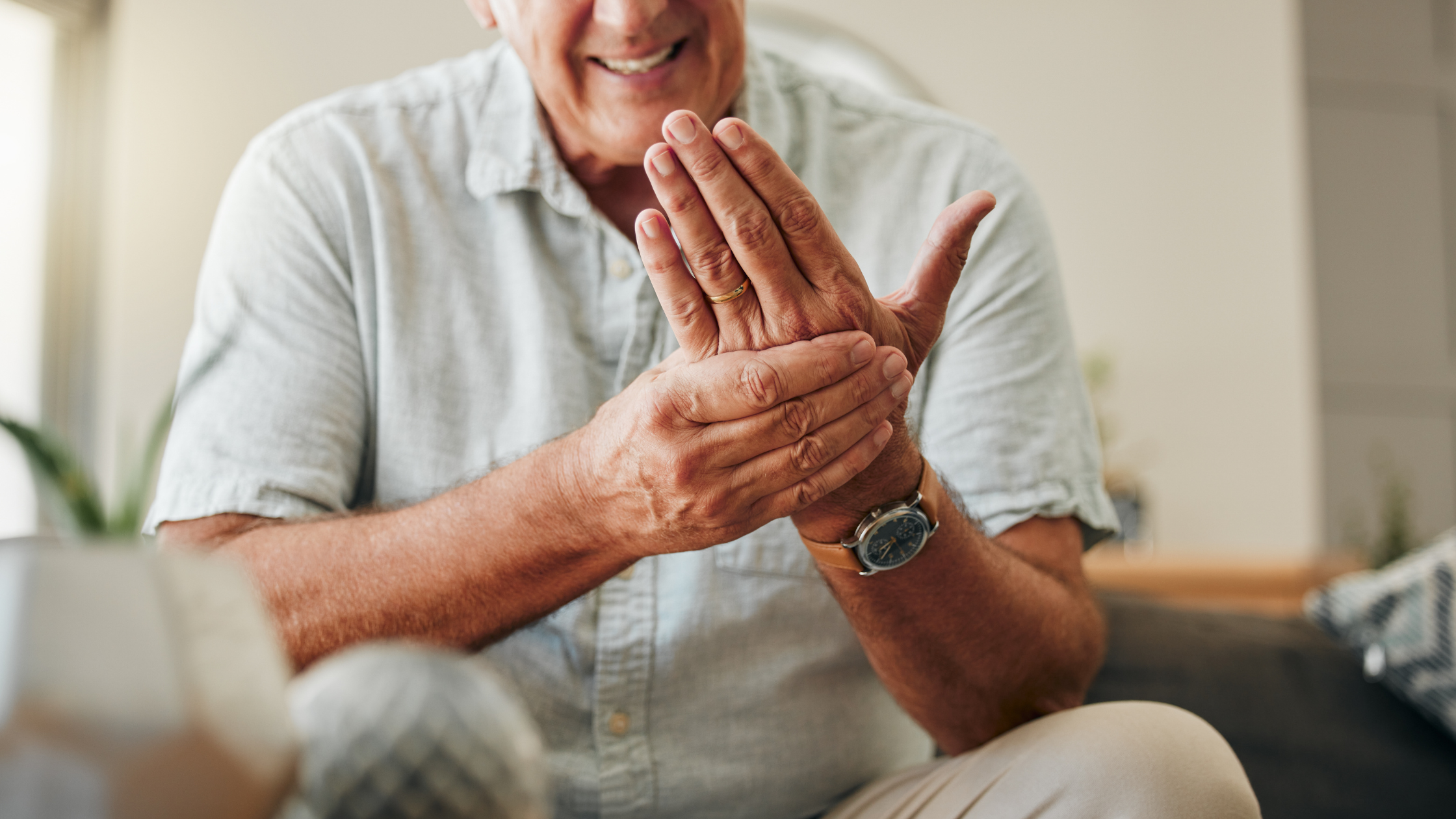
Hand and Wrist Pain
Anyone who has jammed a finger or sprained a wrist playing sports knows how painful—and disruptive—these injuries can be. That’s because we constantly use our wrists, fingers and thumbs in some capacity throughout our waking hours. Pain in the hands and wrists can affect anyone—not just athletes. Overuse and underlying conditions can all cause pain. Osteoarthritis occurs when the cushioning cartilage between bones wears away. It is often the reason for pain in the hands and wrists. Although it tends to affect older adults, it can also arise in younger people as a result of overuse of the hands and wrists in repeated motions. Rheumatoid arthritis is a chronic disease that causes the joints to swell. It often starts in the small joints of the hands and feet. Carpal tunnel syndrome often occurs as the result of repetitive motions and affects up to 10 million Americans.[i] The condition occurs when the tendons that run through a narrow channel in the wrist called the carpal tunnel become irritated and swollen. They then press or squeeze on the median nerve. This can lead to numbness, weakness or pain in the hand, including decreased grip strength. De Quervain's Tenosynovitis is named after the Swiss surgeon who identified it. It results in pain on the “thumb side” of your wrists which can make it difficult to make a fist or grasp objects. It can be caused by repetitive motions like playing an instrument or even texting. Ganglion cysts usually appear on the backs of the wrists and are often the result of overuse or repetitive movements. They can be painful and limit movement in the wrist. Lupus is an autoimmune disease that results in inflammation throughout the body. Joint pain and stiffness are often the first signs of lupus because the inflammation causes a thin lining around the joints to thicken. Some of the other symptoms of lupus include muscle pain, unexplained fever, and a red rash. Peripheral neuropathy results in numbness, pain, sensitivity and/or weakness in your hands and feet. It occurs when the peripheral nerves are damaged, often as the result of injury, infection or some chronic conditions, such as diabetes. Trigger finger occurs when the tendons that control the movements of the fingers and thumb become irritated and swell. This can create the painful sensation of the fingers locking and catching. In severe cases, the fingers can get stuck in a bent position. The good news is that there are many effective treatments for addressing pain in the hands and wrists. Sometimes, the fix can be as simple as rest, splinting and physical or occupational therapy. Other conditions may require more advanced interventions, but the important thing to remember is that you should never settle for living with pain. There are answers and we welcome the opportunity to help you find the relief you seek. Get in touch with the team at First State Ortho today! [i] https://www.rheumatology.org/I-Am-A/Patient-Caregiver/Diseases-Conditions/Carpal-Tunnel-Syndrome Common Causes of Hands and Wrist Pain:
Arthritis:
Carpal Tunnel Syndrome:
De Quervain's Tenosynovitis:
Ganglion Cysts:
Lupus:
Peripheral neuropathy:
Trigger Finger (Stenosing tenosynovitis):
Quick Links
Schedule an Appointment
* indicates a required field.
